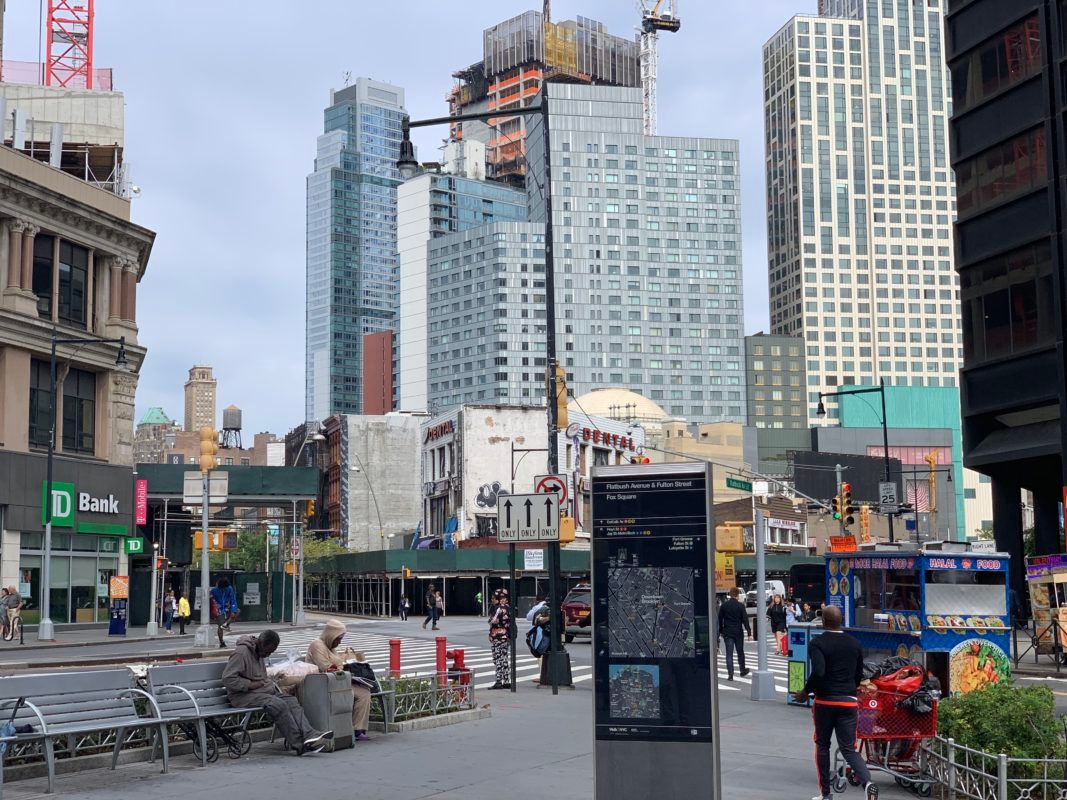Community Land Trusts: Why Are Republicans Not Talking About It? (Opinion)


By Joel Acevedo, President of the Brooklyn Young Republican Club
The city that never sleeps is about to become the city that sleeps on the streets.
Homelessness, residential displacement, and housing insecurity are unfortunately on the rise in New York City, according to the Coalition for the Homeless. Rudy Giuliani’s draconian law enforcement paved the way for Michael Bloomberg’s corporate economic Golden Age, and the question is, what comes next?
Bill de Blasio, who’s largely coasted on past successes of previous administrations, has made a career out of appealing to the frustrations of the working class. Yet, over the past six years, the city shelter system has increased by 20% – including nearly 22,000 children.
And the numbers continue to rise. At the same time, one out of every three City residents continues to spend over half their income on housing, according to the same study.
As a result, Millennial’s, the largest demographic since the Baby Boomers, are putting off settling down and starting a family, owning their own business, or investing in real estate – even though the oldest Millennial is on the cusp of turning forty, according to arecent Pew Research study.
After over a decade of do-nothing politicians and political revolving doors, the affordability crisis has only gotten worse. Our city is rapidly becoming a playground for the super-rich – longtime communities, like Sunset Park, Red Hook, Bay Ridge, Flatbush, and Bushwick are getting pushed or priced out thanks in part to gentrification.
It’s time for local communities to fight back.
An intriguing idea advocated (ironically) by local Democrats could prove a solution to the City’s current affordability crisis: Community Land Trusts (CLT’s).
CLT’s allow for nonprofit, community-based organizations to acquire land with the main purpose of maintaining control in perpetuity for the local community – allowing the creation of affordable housing whose terms don’t expire. According to a report published by New York City Comptroller Scott Stringer, the development of CLT’s could theoretically support “53,116 units of permanently affordable housing located on 1,459 vacant, City-owned properties.”
Comptroller’s report goes on to say that, “…these potential units span all five boroughs, with the highest numbers in Queens (26,025), Brooklyn (21,570), and the Bronx (2,665).”
Brooklyn residents facing discriminatory displacement policies like redlining and reverse redlining would benefit immeasurably from CLT’s. An article in the CUNY Law Review praised CLT’s as, “…economically advantageous, preserving and recycling public subsidies. Through a 99-year ground lease whereby the CLT leases the land to residents, the CLT allows for usage by a qualifying low-to-middle-income resident and maintains affordability for future homeowners or tenants” (Gilgoff 2017).
Rather than recreating new housing once the terms of affordability expire, CLT’s would actually save the City money. And the social impact would be incalculable. Why aren’t Republicans talking about this?
Stopping the actions that cause local displacement will pay dividends in the long run.
“By involving residents, public officials, and local leaders on the co-op or CLT boards, educated decisions about expenditures and investment can be achieved” (Gilgoff 2017).
And nothing says “republican” or “reform” (or at least it used to) more than eliminating bureaucracy and empowering residents.
While economic development, or “gentrification,” can attract outside investment to at-risk urban neighborhoods, the resulting physical displacement prevents those in most need from taking advantage of the fruits that such gentrification is intended to bear.
In simpler terms: people directly affected by community land-use contracts should play a more central role in the terms of their negotiations.
I’m looking at you, Councilman Brannan (D-Bay Ridge,) Councilman Menchaca (D-Sunset Park,) Assemblywoman Frontus, and State Senator Gounardes (D-Bay Ridge).
As hard as you may try to dangle a price tag on our street signs and city blocks, our neighborhoods are not for sale.
But by pursuing policies that continue to prioritize corporate interests over community needs, and by encouraging a steady stream of political revolving doors between Albany and City Hall, how can we ever hope to bridge the widening gap between social and economic inequalities?
It makes me empathize with the Ocasio-Cortez, Donald Trump, Tiffany Caban, and the “burn it all down” mentality. However, I would rather support more sensible solutions, and don’t think I’m alone.




